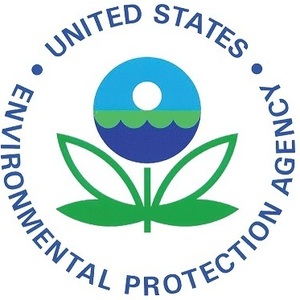US EPA approves another 2017 small refinery exemption to RFS

March 29, 2019
BY Erin Krueger
Data released March 28 by U.S. EPA indicate the agency has approved another small refinery exemption under the Renewable Fuel Standard for compliance year 2017, bringing the total number of approved waivers for the compliance year to 35.
To date, the EPA has received 37 petitions seeking small refinery exemptions from RFS blending obligations for compliance year 2017. The agency has approved 35 of those petitions, with one still pending and one classified as ineligible or withdrawn. The 35 approved petitions have exempted approximately 1.82 billion renewable identification numbers (RINs), or approximately 17.05 billion gallons of gasoline and diesel from meeting RFS blending targets.
EPA data shows no other changes were made to the status of waiver petitions filed for compliance years 2018, 2016, 2015, 2014 or 2013 between March 14 and March 28.
As of March 28, 39 petitions seeking small refinery exemptions for 2018 have been filed. All 39 of those petitions are still pending.
Advertisement
For compliance year 2016, the EPA has received 20 small refinery petitions, with 19 approved to date and one still pending. The 19 approved petitions have exempted approximately 790 million RINs, or 7.84 billion gallons of gasoline and diesel from meeting RFS blending targets.
For compliance year 2015, the EPA received 14 petitions. The agency approved seven petitions and denied six. One petition was declared ineligible or withdrawn. The seven approved petitions have exempted approximately 290 million RINs, or 3.07 billion gallons of gasoline and diesel from meeting RFS blending targets.
The EPA received 13 small refinery petitions for compliance year 2014. The agency approved eight petitions, but denied the remaining five. The eight approved petitions exempted 210 million RINs, or approximately 2.3 billion gallons of gasoline and diesel from meeting RFS blending targets.
For the 2013 compliance year, EPA received 16 petitions. The agency approved eight and denied seven. One petition was declared ineligible or withdrawn. The eight approved petitions exempted 190 million RINs, or approximately 1.98 billion gallons of gasoline and diesel form meeting RFS blending obligations.
Advertisement
The Renewable Fuels Association, Growth Energy and the Iowa Renewable Fuels Association issued statements in response to the news that EPA approved another small refinery exemption for compliance year 2017.
“If these exemption trends continue, they will fully and completely undermine the RFS at the expense of rural America and cause consumers to pay more at the pump for dirtier fuels,” said Geoff Cooper, president and CEO of the RFA. “With dozens of ethanol plants closing or idling and U.S. ethanol consumption showing the first annual decline in 20 years, it is unfathomable that the new EPA administrator would double down on former Administrator Pruitt’s unjustifiable abuse of the small refinery exemption provision. We hope that today’s waiver marks the end of this destructive trend and hope to see a more transparent process in the weeks to come as EPA decides on the 39 pending 2018 exemption requests.”
“New leadership at the EPA was supposed to mean a return to the president’s pro-biofuel agenda,” said Emily Skor, CEO of Growth Energy. “Instead, we’re getting a man-made recession in rural America, just to boost profits for a few oil giants. There’s no way to view continued abuse of EPA wavers except as a betrayal of rural manufacturing workers and farm communities. The EPA has now destroyed 2.6 billion gallons of biofuel demand, eliminating the market for a billion bushels of U.S. grain. Farm families are already facing natural disasters, on top of lost export markets. If the EPA doesn’t act now to restore the market promised to farmers, there is little hope for a swift rural recovery. EPA must start considering denials for the record 39 exemption requests that have already arrived for 2018. If 2018 looks anything like 2017 in terms of refinery handouts, the damage to the rural economy could be irreparable.”
Monte Shaw, IRFA’s executive director, said, “Today’s announcement highlights some startling facts. The Trump administration has granted over 2.5 billion gallons of SREs. The Trump administration has not denied a single SRE to date, even as refiners enjoy record profits and ethanol plants are shuttered and sold. For the first time in 20 years, U.S. ethanol use fell in 2018. And farm income is declining for yet another year. This bleak record is not what President Trump promised to Iowa voters. A major course correction is needed before it's too late.”
Related Stories
The U.S. EPA on July 8 hosted virtual public hearing to gather input on the agency’s recently released proposed rule to set 2026 and 2027 RFS RVOs. Members of the biofuel industry were among those to offer testimony during the event.
The USDA’s Risk Management Agency is implementing multiple changes to the Camelina pilot insurance program for the 2026 and succeeding crop years. The changes will expand coverage options and provide greater flexibility for producers.
President Trump on July 4 signed the “One Big Beautiful Bill Act.” The legislation extends and updates the 45Z credit and revives a tax credit benefiting small biodiesel producers but repeals several other bioenergy-related tax incentives.
CARB on June 27 announced amendments to the state’s LCFS regulations will take effect beginning on July 1. The amended regulations were approved by the agency in November 2024, but implementation was delayed due to regulatory clarity issues.
SAF Magazine and the Commercial Aviation Alternative Fuels Initiative announced the preliminary agenda for the North American SAF Conference and Expo, being held Sept. 22-24 at the Minneapolis Convention Center in Minneapolis, Minnesota.
Upcoming Events










